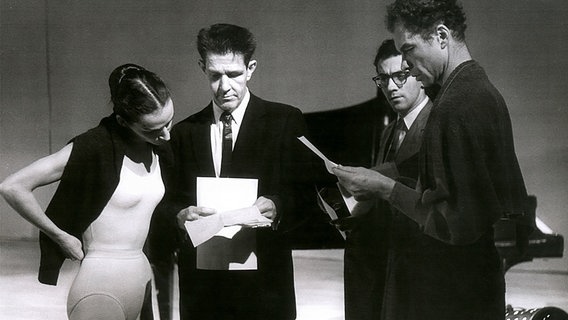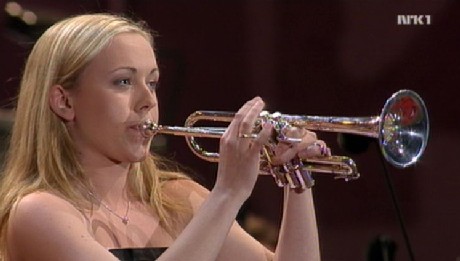Times are tough in Portugal, so they’re putting on the whole Ring in half a day, with just 18 players.
Graham Vick and Jonathan Dove of Birmingham Touring Opera, Remix Ensemble and conductor Peter Rundel

are the driving forces. After opening in Porto, the show goes on tour to Strasbourg, Nimes, Luxembourg and Riems. Here are the venues and dates:

And here’s the promo video and a news report
He is Sweden’s most important symphonist, its equivalent to Finland’s Sibelius, and he was born 100 years ago next Monday.

Yet hardly any musicians outside his own country have remembered the occasion (his publisher excepted) and within Sweden itself the response is decidedly muted.
Why is that?
Because Allan Pettersson was ultimate outsider, a composer of Barefoot Songs who denounced the nanny state and went his own stubborn way, cradle to grave. Two great conductors – Rafael Kubelik and Antal Dorati – championed his work. Ida Haendel played his second violin concerto. Old recordings can still be found. Only one new release has landed on my desk in his centenary year.
The seventh symphony is an extraordinarily powerful work, and I discussed the rest in some detail in my Complete Companion to 20th Century Music.

‘I am not a composer, I am a voice crying,’ said Pettersson.
‘He started drilling, and it still hurts,’ says an article in Svenska Dagblad.
Sweden’s ambivalence has damaged his legacy.
There’s another John Cage festival in the offing, this one in Germany.
North German Radio (NDR) are putting on a three-day Cage fest with pianos (prepared and raw) and orchestra. It celebrates the great man’s 99th birthday this month and his past association with NDR (pic below). Details here.

pictured: Carolyn Brown, Cage, David Tudor, Merce Cunningham at NDR, 1958.
In a commentary in today’s JC, I argue that the London Philharmonic had no choice. Four of its players had used its name in a political statement, calling for the Israel Philharmonic to be banned from the Proms. They had no authority to make a corporate statement of this kind and the company was put in a position where, by doing nothing, it appeared to endorse their action.
The musicians who own and operate the orchestra decided otherwise and took the exceptionally harsh step of suspending four of their colleagues for up to nine months. The JC, in its leader, applauds that action.
My view is that the punishment is too harsh. The suspensions need to be set aside after a brief period and the matter laid to rest.

There has already been a minor outbreak of para-antisemitic tittle-tattle, suggesting – without saying so explicitly – that a Jewish cabal forced the musicians’ suspension. The LPO, like all London orchestras, has a certain number of Jewish supporters, some of them wealthy and influential. They will have made their views known. However, the suspension could not have been imposed without the endorsement of a significant majority of players,executives and donors. Those, like the New Statesman, who point a finger at the Elders of Zion, merely expose their innate racism,
Reports are coming in that Myung Whun Chung, music director of the Seoul Philharmonic, is on his way home after a visit to Pyongyang, aimed at easing cultural relations between the two halves of the country. According to official North Korean sources, reported by AP, he conducted two orchestras and discussed music programes for children.
Here‘s Voice of America.

More inf as I receive it.

A new Government survey reveals an alarming decline in traditional British activities.
Of 14,102 people polled by the Department of Culture Media and Sport, only 71.7 percent admitted to taking part in a sporting activity as part of their leisure pursuits. For the land that invented most ball games, that’s a shocking droop.

Against this display of decadence, a full 73.7 percent had listened to music, 42.3 percent had visited a theatre or concert.
Even more dispiriting, the number of those who confessed to playing an instrument had shot up from 0.6 percent to 10.5 percent.
I have written to the Prime Minister, calling for a public inquiry.
At this rate England will not be able to field a team at the next World Cup and tabloid newspapers will have nothing to publish.
Here‘s a link to the full report.
Deutsche Grammophon has posted a promo video of Youtube’s most popular and the girl with the violin case in their upcoming album of Charles Ives. ‘We don’t spend a whole lot of time discussing things…’ they say.
Both are required to dress for camera like Daughters of the American Revolution, or maybe Amish interns. Made for TV.
Anyway, enjoy. I did.

In the October issue of The Strad magazine, out today, I reflect upon the aftershocks of the Gidon Kremer letter
and ask why it is that no violinist today enjoys genuine world fame. Here’s the conundrum:
Try a simple test. Ask your neighbour, newsagent, nursery teacher or neurosurgeon to name a famous violinist. Paganini, Menuhin, or Kreisler, they’ll say. Then ask for a living soloist. In England, one of them might say Nigel Kennedy, in America Joshua Bell, in Germany Anne-Sophie Mutter, in Estonia Gidon Kremer. But that’s it. There is no string player today who commands the global reach of past masters.
Now why is that? Nothing to do with how they play. Note for note, Alina Ibragimova and Gil Shaham can hold their own with any legend in the archive, so why aren’t they better known? Milstein, in his eighties, told me that he could never play as fast as the current crop, no could he put a finger on what it was that made them less imposing.
The truly worrying thing for Strad readers is that this image decline affects only string players. Lang Lang, Helene Grimaud, Kissin and Richard Clayderman are recognised wherever they go. Anna Netrebko is no less famous than Callas. Domingo is a household name. No drawer of bow across bridge can match their celebrity.
Now why is that? Your thoughts please.

This will be my last conversation in The Strad for the time being. My time has got too tight, and the magazine is taking a slight shift of editorial focus. It has been great fun talking straight to the stringies. I’ll probably do it again some time.
It’s ….. Lorin.
The contract doesn’t kick in for another year, but Maazel, 81, has taken over the Munich Philharmonic 2011/12 season after Christian Thielemann huffed out. His opening programme features Shostakovich first cello concerto (soloist Sol Gabetta) and Scriabin Poème de l’Extase.
They must really love Lorin in Munich. He has already put in nine years there as head of the radio orchestra (1993-2002).

In a fortnight he’s back in London to continue his hitherto underwhelming Mahler cycle with the Philharmonia.
It has been announced that the bass-baritone Thomas Quasthoff has cancelled all engagements for the rest of the year, due to persistent laryngitis.
When I saw him in summer, he was very relaxed about his recovery – but also about the possibility that he might have to delay his return.

He struck me as an incredibly well-balanced person, clear about his human priorities and eager to enjoy everything life has in store for him. If he can’t sing, he’ll still be going to clubs, lunching with Simon at their local and making sure he misses nothing worth seeing in Berlin.
You can hear the podcast of our Lebrecht Interview here.
Amy Winehouse would have been 28 today.
She sings Body and Soul with Tony Bennett, here.

(photo: nme)
The Norwegian trumpeter Tine Thing Helseth has 2,150,126 hits for her recording of the third movement of the Haydn concerto.

That puts her ahead of Wynton Marsalis and all other contenders on her instrument. It also just edges out the mighty Val.
Go figure.
















